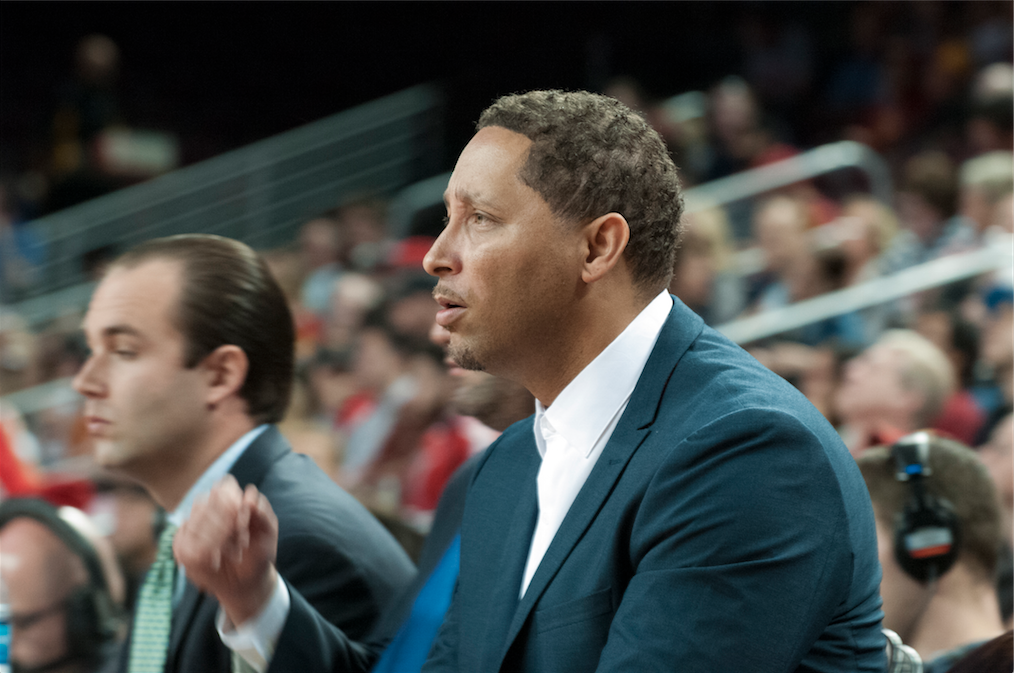Former basketball coach sentenced to two years of probation

Former men’s basketball coach Tony Bland was sentenced to two years of probation and 100 hours of community service Wednesday after pleading guilty to conspiracy to commit bribery in January, despite prosecutors pushing for him to face up to a year in prison.
Bland admitted to accepting $4,100 in bribes in exchange for directing USC players to a sports management company headed by Christian Dawkins and Munish Sood. He was one of 10 men charged in the FBI’s 2017 case against bribery in college basketball.
These 10 men, including three other NCAA assistant basketball coaches, allegedly took advantage of bribes to direct talented college basketball players to financial advisors. Substantial evidence in the case was brought to light by undercover FBI agents who acted as partners to acquire access to the bribery ring.
Bland was awarded a light sentence despite a victim impact statement sent to Judge Edgardo Ramos by USC vice president Michael Blanton in May addressing the adverse effects of Bland’s actions on the University.
“The actions of Mr. Bland and his co-conspirators have significantly damaged the reputation of USC as an institution, the USC athletic department and its men’s basketball program,” Blanton said in his statement. “Further, their actions have prompted an NCAA investigation that may result in penalties.”
Blanton also said the University suffered significant expenditures as a result of investigating Bland’s misconduct and cooperating with the prosecution. The statement did not include how much the school spent on the investigation.
Bland’s attorney Jeffrey Lichtman pointed to USC’s other transgressions, including the recent college admissions bribery scheme, to suggest that Bland was not the sole reason for the NCAA’s concern about the University’s conduct.
After announcing Bland’s sentence, Ramos explained that he took Bland’s troubled past into account, as well as the numerous testimonials he received supporting Bland’s character. Bland overcame a childhood in which his father was incarcerated due to gang activity, his mother was an addict and his grandmother was schizophrenic.
“[I see] young men of color every day in this courtroom, unable to overcome those backgrounds,” Ramos said. “I am convinced to a moral certainty that I will not see Mr. Bland again, at least not in this courtroom.”
While delivering his statement in court, Bland apologized to the prosecution, his peers and the players affected by his crime.
“I’m excited it’s over. I appreciate Judge Ramos for the outcome and giving me another chance, a second chance,” Bland told CBS Sports following the trial. “I’m just looking forward to rebuilding from my mistakes, and from this moment on, spending the rest of my life trying to prove and help and reverse the stigma that came from this.”

